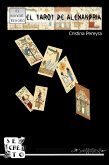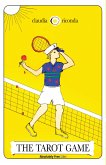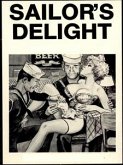If you are a neophyte, then this book is designed to get you started. You may never have even seen an entire deck of Tarot cards, but are intrigued by the possibilities they may hold. Without memorizing hundreds of meanings for the entire deck, you will be able to hold Readings for yourself and others that will be informative, simple to understand and give new hope and directions for a better future. This book is designed so that Tarot Card Readings can be done by using the spread diagrams, meaning sheets, charts, worksheets and color-coding in such a manner that the Querent will be able to follow along with you as the Reader.
Part 1: Reader and the Querent
This explains what you need in order to be a Reader. It will illuminate the connection you must make with the Universe that will give you the ability to do an accurate Reading. This defines the Querent who will receive the Reading, whether you are the Querent doing a Self-reading or for another person. Certain expectations from the Querent's point of view must be met in order to have a successful outcome. There is an interaction between the Reader and the Querent. Communication is paramount in order to avoid any misunderstanding concerning the process. This includes your own inner-dialogue when you are doing a Self-reading.
Part 2: Making Choices
There are common factors for the space of choice. The importance of a Reading layout arrangement will be discussed. Various surface plans will be given to accommodate several different possibilities when doing a Reading. A description of environmental enhancements, what they are and their importance in a Reading will be given. Environmental allergies are also addressed. There is a discussion of common features found in many of the traditional and popular decks.
Part 3: The Significator
The Significator is an integral part of the Reading. There is an outline of what a Significator is, why it is important, and various ways that a Significator can be chosen. While there are many possibilities, by answering a few simple questions on the "Questionnaire Worksheet," the choice can be narrowed down fairly quickly.
Part 4: Tarot Card Meanings
This introduction will alleviate any fears you may have that you must memorize hundreds of meanings in order to have a valid Reading Session. How you should handle a preconceived idea that you may have for a card meaning is discussed. Why not all meanings on a card can apply to the question or directive will be explored. Reversals are explained and reasons for not using them are clarified. The difference between Pip Card meanings and Court Card meanings will be explained.
Part 5: Tarot Card Spreads
This will introduce spreads to you that are used during a Reading to focus on a particular aspect that is in need of an answer. An example is detailed for you so all spreads can be easily followed. How they are categorized by Fire, Water, Air and Earth, and their subdivisions are charted. How to choose the right spread is also important, and procedures are given. Why the questions or directives are formed the way they are will be clarified. Forbidden spreads for you and/or the Querent will be explained.
Part 6: On Your Mark, Get Set, Go
You will need to be prepared to give Readings. There is an outline for the paraphernalia that a carrying case should have so that you can be ready at a moment's notice to do a Reading. A keepsake gift of the Reading for the Querent is described and an example given.
Dieser Download kann aus rechtlichen Gründen nur mit Rechnungsadresse in A, B, BG, CY, CZ, D, DK, EW, E, FIN, F, GR, HR, H, IRL, I, LT, L, LR, M, NL, PL, P, R, S, SLO, SK ausgeliefert werden.









